Veganuary: What is the difference between vegan & cruelty-free cosmetics?
- Rachel Irwing

- Jan 4, 2022
- 4 min read
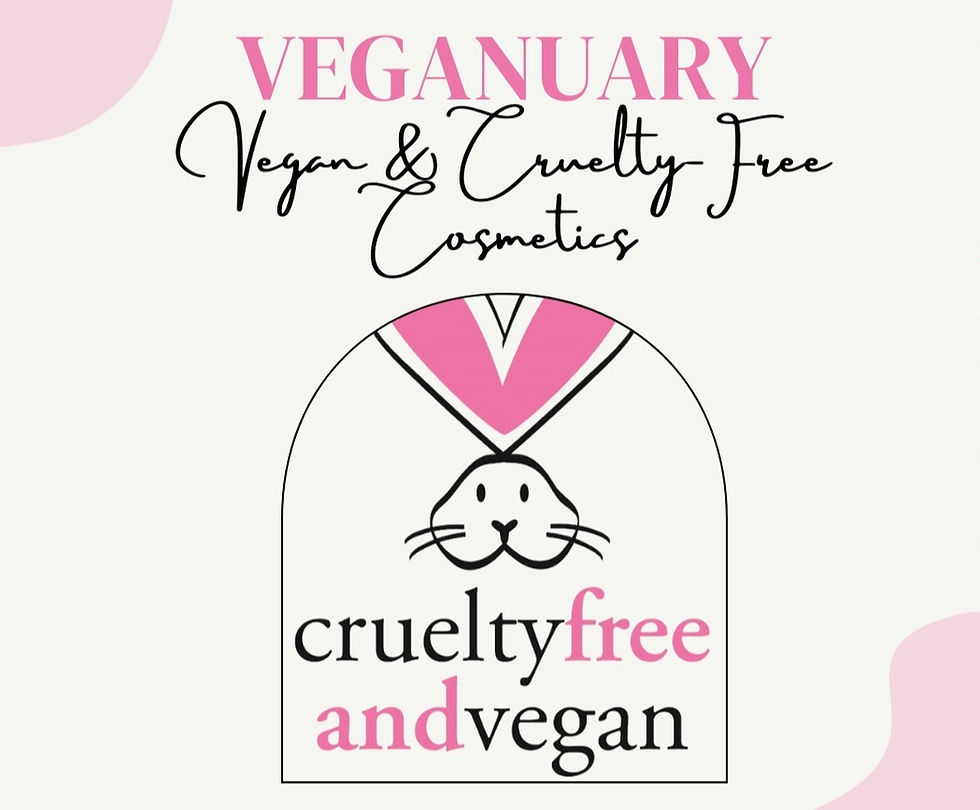
Hi, Collective and any new Veganuary-ers!
Today we are stepping away from the diet part of being vegan and diving into how being vegan translates into the rest of your lifestyle. One important thing to remember is that animal by-products are hidden everywhere! It's important to be vigilant and check labels on all products that you purchase (within your comfort zone). For me, personally - I like to make sure my cosmetics are cruelty-free, vegan and (more) environmentally-sound (at least), and made with clean ingredients. This means, when I shop I look at all the labels on the items I think about purchasing and see if they align with my lifestyle choices.
As you can see in the slideshow to the left (taken from our Instagram page, follow us @theecogreenco) cruelty-free and vegan do not mean the same thing when picking out cosmetic products.
Cruelty-Free
This means that the product was not tested on animals, BUT it might contain animal products! In this case you would either want to read the ingredient labels or choose a new product that advertises both cruelty-free and certified vegan. According to vegancuts.com, the most common non-vegan ingredients found in beauty products are:
Collagen
Gelatin
Beeswax
Lanolin
Carmine
Cholesterol
Silk powder
Animal-derived glycerin
Certified Vegan
Okay, here's the kicker. A product can be marked as "certified vegan" even if it is tested on animals, sadly. This makes absolutely no sense, but it is important to know. When a product is certified vegan, it means that it does not contain any animal by-products, making the ingredient list (but not necessarily the production and testing) vegan.
Cruelty-Free and Certified Vegan
This is the best product to choose, because it does not contain any animal products and it is not tested on animals. A great list of companies that offer both certified vegan and cruelty-free products can be found here.
Eco-Conscious
This term can be very ambiguous. There are extremes (that I wish were accessible to all, but in reality aren't) and there is greenwashing (a term that is used to describe companies that market their products as being eco-friendly, but really aren't - just to get you to buy them). This may be a bit irrelevant since this post is about cosmetics and beauty products, but things marked as "sustainable" like "sustainable seafood" is just a market strategy to get people who care about the environment to purchase their products under the pretense that they have sustainable practices, when they don't - the situations are similar with beauty products, though. But, I try to do the best I can when purchasing household and
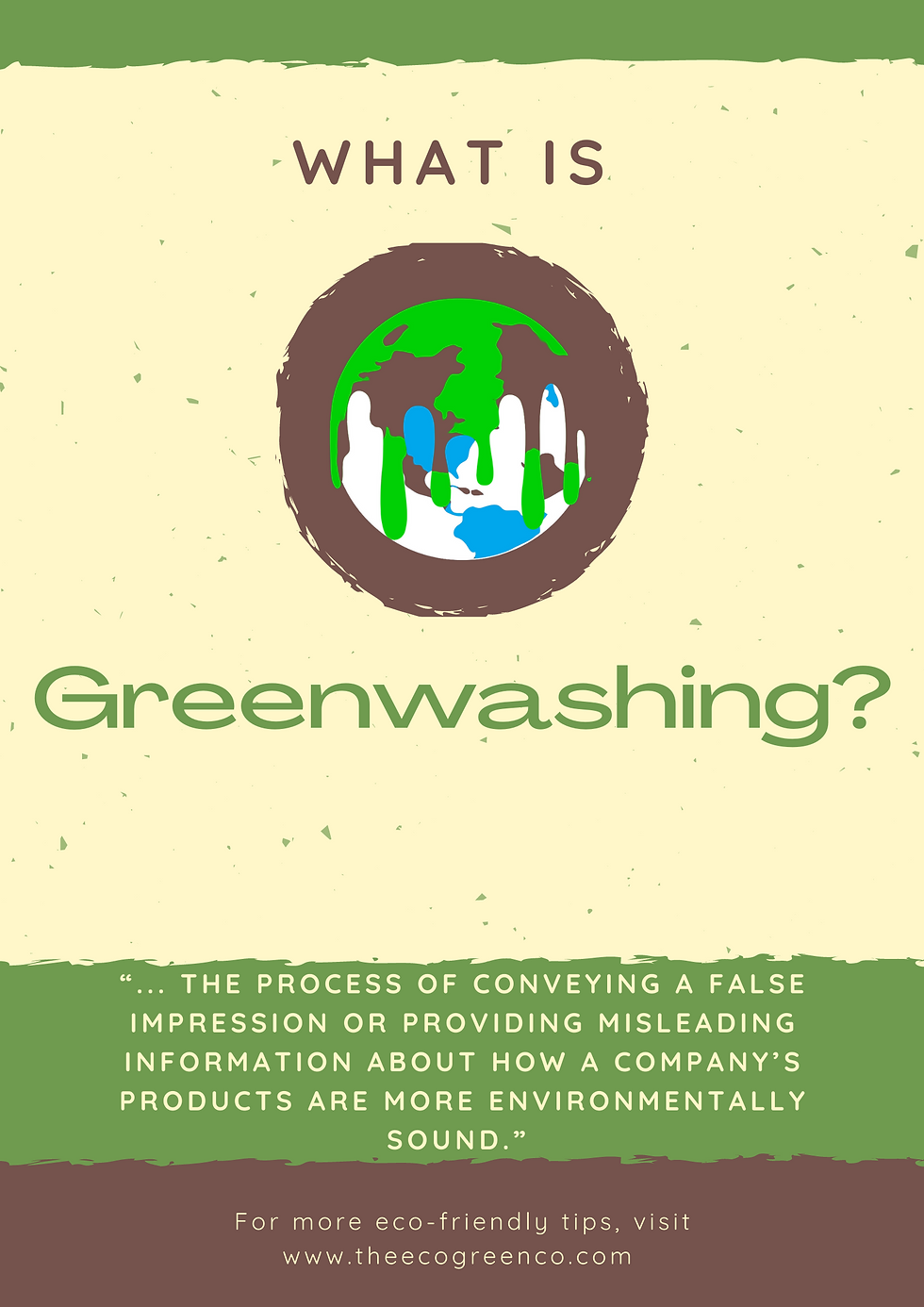
beauty products. If there is an option that is "naked" (not packaged in plastic wrap or in plastic coated cardboard, I will opt for that product, but if that is not an option, the next best product would be one that is made out of recycled materials.
A lot of companies that use the terms "all natural", "raw ingredients", "derived from plants", are actually just targeting you as a consumer because they are not necessarily regulated when it comes to certain things and are able to claim this label, when it may not be 100% truthful. BUT, don't get discouraged, we all fall for it - the way that I look at it is, even if it is not 100% truthful, it's still better than the alternative in most cases.
At this point, you may be wondering why eco-conscious is even in this post. This is because being mindful of the environment is a big part of being vegan. Let's look at an example: PALM OIL. This ingredient can be found in both food and beauty products. It's a vegetable oil, which means, it is TECHNICALLY vegan in that sense, but in production, this is what it does:

We all can agree deforestation is terrible, leaving wildlife with no where to go and contributing to multiple other issues. So, the practice of harvesting this "vegan" ingredient is harming wildlife - this is where the cruelty-free and eco-conscious labels come in. It is important to think of 1) ingredients, 2) practices, 3) production, and 4) un-intended (direct/indirect) impacts.
Clean Ingredients
The last thing to check your label for are the ingredients. Are these products natural or synthetic? Will long-term use cause side effects? This part is where the "naturally-derived" and "organic" comes in (when looking for organic products make sure it is certified organic). It is important to DOUBLE CHECK the ingredient list and company background when they claim that their products are "clean".
Let's Conclude...
In summary, make sure you are very diligent when looking at labels and claims from big companies, that care more about your money, than your well-being. And remember, if you can shop local, from trustworthy members of your community, this would be your best option. When shopping local, it is easier to look at ingredients and find out the morals of the seller.
I also want you all to remember this change does not happen overnight, and it doesn't make you "any less vegan" or a "bad vegan" if you haven't gotten here yet, hell you don't even have to be vegan to want to buy products that don't inflict harm on others your that will harm yourself. This post just scratches the surface about cosmetic products, green-washing and vegan/cruelty-free topics. Be sure to do your own research and consume products that align with YOUR morals and lifestyle choices, be true to what you believe, not others!
Follow us on Instagram (@theecogreenco) and Facebook (theecogreenco) for daily tips and tricks!




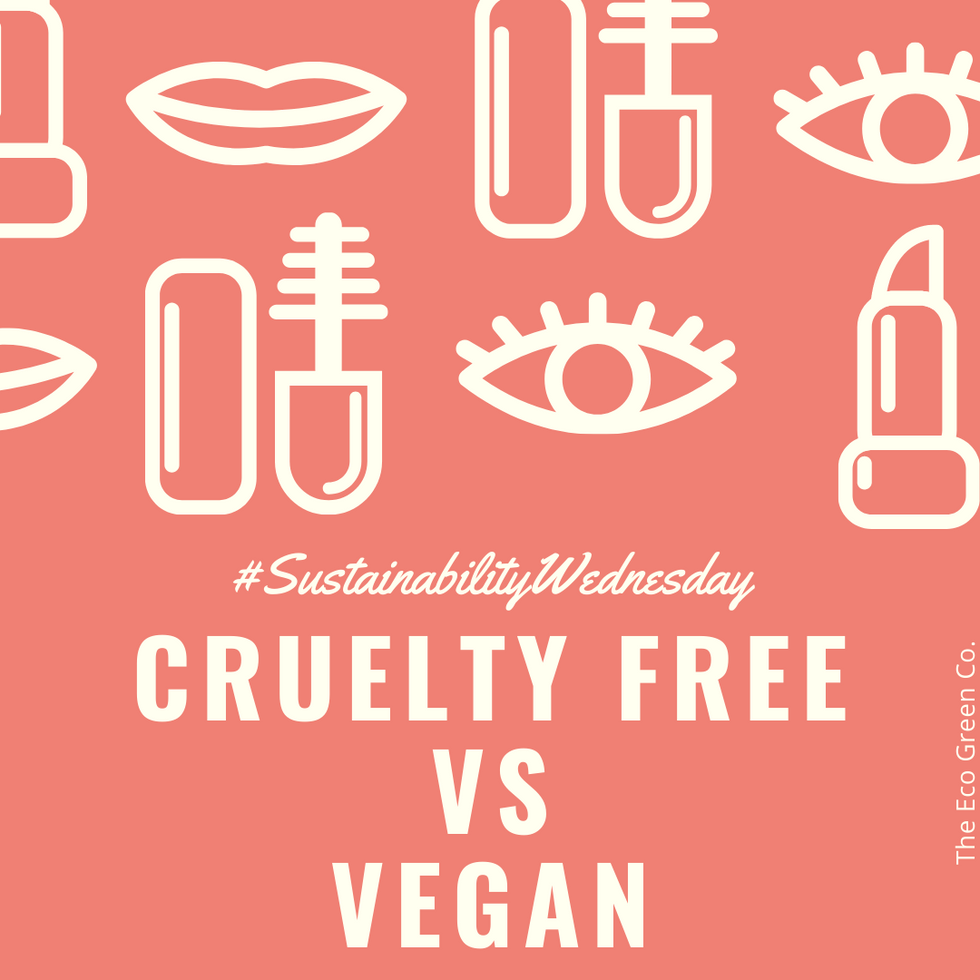







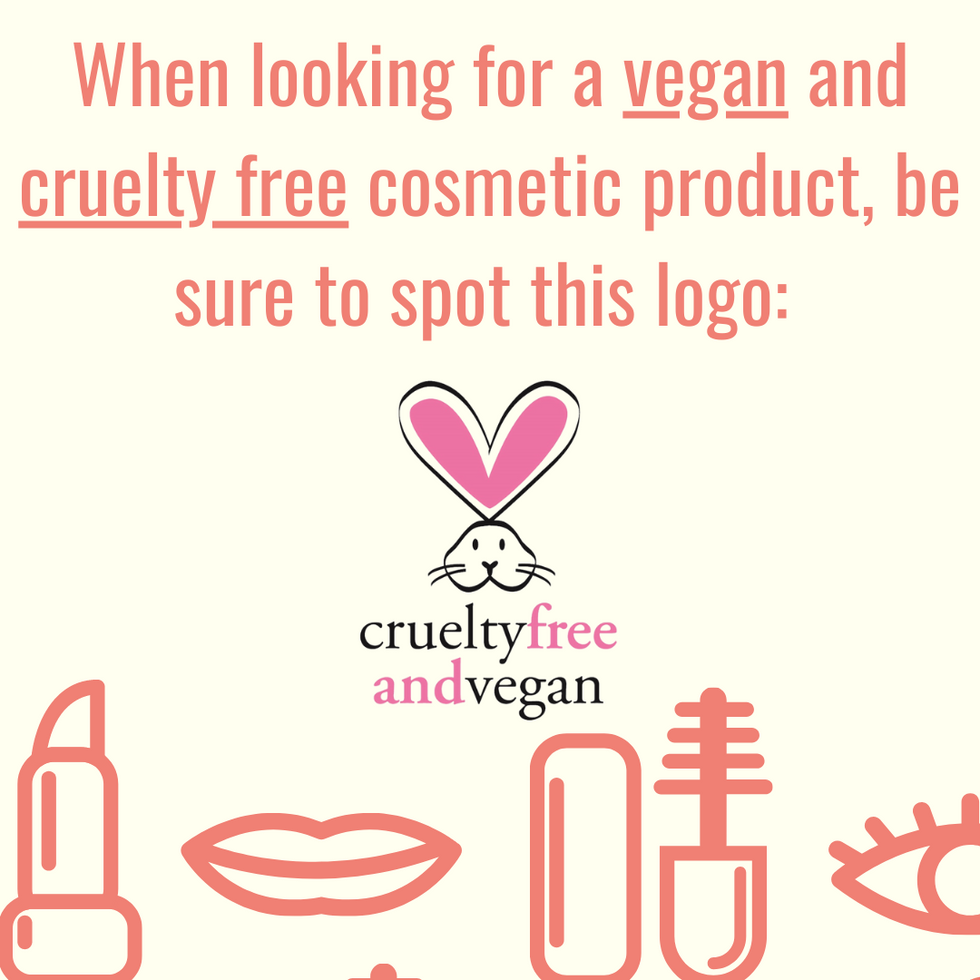










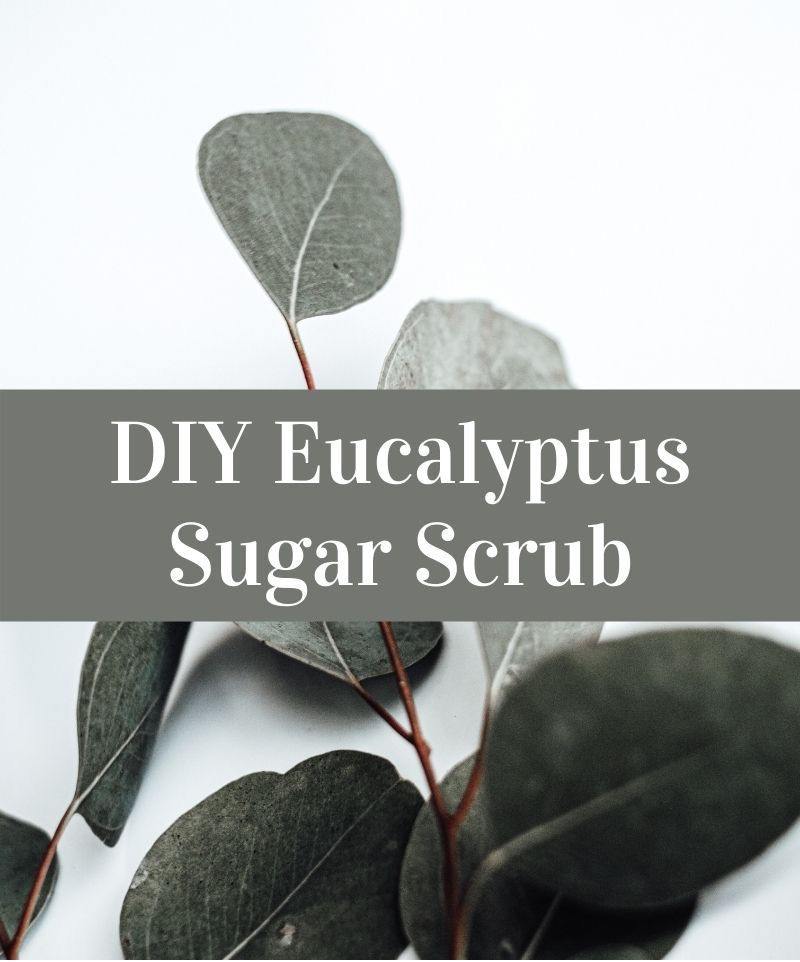
![[vegan] Italian Wedding Soup](https://static.wixstatic.com/media/11024d_ef6219e6635b4f029943bf6fa294a46a~mv2.png/v1/fill/w_250,h_250,fp_0.50_0.50,q_35,blur_30,enc_avif,quality_auto/11024d_ef6219e6635b4f029943bf6fa294a46a~mv2.webp)
![[vegan] Italian Wedding Soup](https://static.wixstatic.com/media/11024d_ef6219e6635b4f029943bf6fa294a46a~mv2.png/v1/fill/w_54,h_54,fp_0.50_0.50,q_95,enc_avif,quality_auto/11024d_ef6219e6635b4f029943bf6fa294a46a~mv2.webp)
![[R E V I E W] Daring. Breaded Plant Chicken Pieces](https://static.wixstatic.com/media/11024d_bb6241d754044a84b629c128343e62f2~mv2.png/v1/fill/w_250,h_250,fp_0.50_0.50,q_35,blur_30,enc_avif,quality_auto/11024d_bb6241d754044a84b629c128343e62f2~mv2.webp)
![[R E V I E W] Daring. Breaded Plant Chicken Pieces](https://static.wixstatic.com/media/11024d_bb6241d754044a84b629c128343e62f2~mv2.png/v1/fill/w_54,h_54,fp_0.50_0.50,q_95,enc_avif,quality_auto/11024d_bb6241d754044a84b629c128343e62f2~mv2.webp)


![[REVIEW] Good Catch Vegan Crab Cakes](https://static.wixstatic.com/media/11024d_3ac3211eaa9544fd864e47d8a292b154~mv2.png/v1/fill/w_250,h_250,fp_0.50_0.50,q_35,blur_30,enc_avif,quality_auto/11024d_3ac3211eaa9544fd864e47d8a292b154~mv2.webp)
![[REVIEW] Good Catch Vegan Crab Cakes](https://static.wixstatic.com/media/11024d_3ac3211eaa9544fd864e47d8a292b154~mv2.png/v1/fill/w_54,h_54,fp_0.50_0.50,q_95,enc_avif,quality_auto/11024d_3ac3211eaa9544fd864e47d8a292b154~mv2.webp)
![[vegan] Biscoff Chocolate Mousse Pie](https://static.wixstatic.com/media/11024d_17298cf152cc4241826fa6b4acbc1c28~mv2.jpeg/v1/fill/w_250,h_250,fp_0.50_0.50,q_30,blur_30,enc_avif,quality_auto/11024d_17298cf152cc4241826fa6b4acbc1c28~mv2.webp)
![[vegan] Biscoff Chocolate Mousse Pie](https://static.wixstatic.com/media/11024d_17298cf152cc4241826fa6b4acbc1c28~mv2.jpeg/v1/fill/w_54,h_54,fp_0.50_0.50,q_90,enc_avif,quality_auto/11024d_17298cf152cc4241826fa6b4acbc1c28~mv2.webp)



Comments